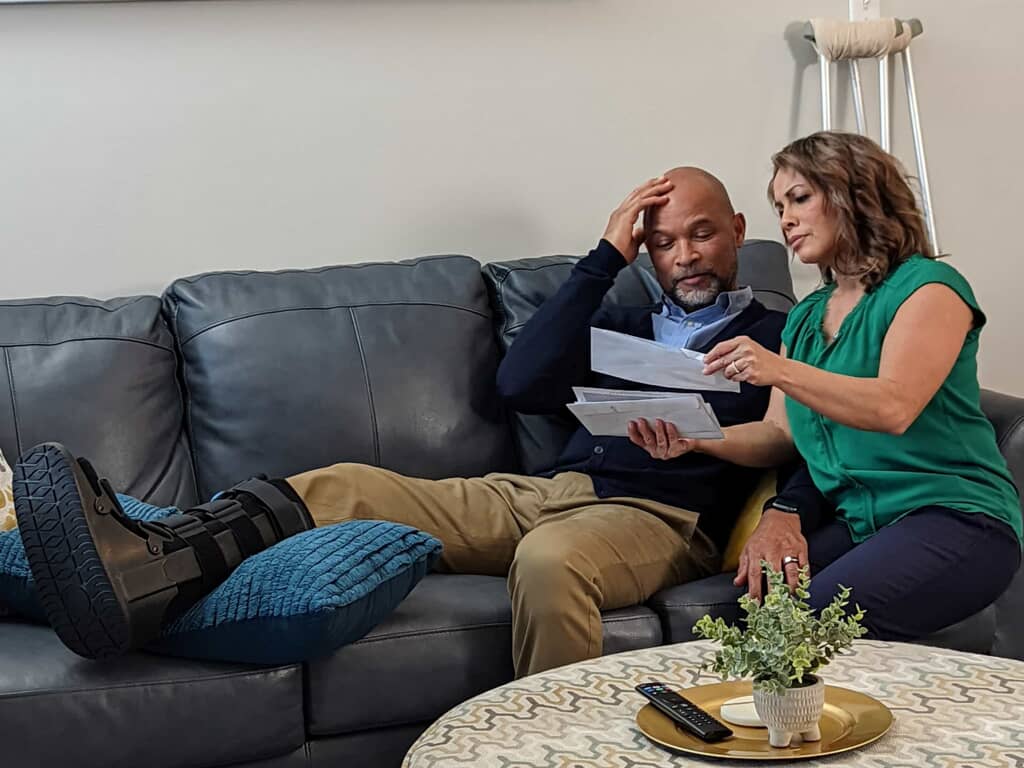
Have you been injured due to someone else’s mistakes, carelessness, or negligence? You might know that you can file a personal injury claim against them, but you might not know too much beyond that.
What is the personal injury claim process? What happens after I’ve been injured by someone else’s negligence? How do I recover compensation for my medical bills, lost wages, and pain and suffering? We hope to answer these questions and put any initial concerns you may have about making a personal injury claim to rest by sharing a quick rundown of what that process entails.
- See a doctor: First and foremost, you should see a doctor or go to an emergency room, depending on the severity of your injury, if you have not already done so. For your own health and wellbeing, it is very important to get checked out by a medical professional following an accident. Not seeing a doctor is not only dangerous to your health, but it can also be the biggest obstacle for many personal injury cases. If there is no medical evidence to back up what you the claimant (or plaintiff) is saying happened, then there is no support for your personal injury claim. It is important that you see a doctor and have your injury medically documented as soon as possible after being injured. Make sure to use your health insurance if you have it.
- Consult with an attorney: Insurance companies keep defense teams on staff or on speed dial to shut down injury claims filed against them and their policyholders. Insurance companies understand injury law and will use that against you, because they know you don’t. If you want to stand an honest chance against them, then you should speak with, get the advice of, and hire an attorney of your own as soon as possible. Many mistakes are made early on by the injured thinking that the insurance companies are there to help, when in reality they are not. Insurance companies are in business to make a profit so they will work to minimize the amount of money, if any at all, that they pay you for your injuries. They will use any advantage they can. Consultations at Huffman & Huffman are always free. During a consultation, you will discuss all the details of the incident/accident and your injuries. Then your lawyer will advise you on the best course of action and the types of compensation that may be available in your case.
- Build a claim: Once you have a personal injury lawyer in your corner, it is time to start building your claim. Your attorney is there to make the process easy. Your attorney team will gather evidence of liability (fault), identify insurance coverage to cover your injury, obtain witness’ testimonies, work with your medical providers, and calculate your damages. You should feel comfortable leaving as much of the process as possible up to your legal counsel so that you can focus on treatment and recovery from your injuries.
- File a claim: Once you have finished your medical treatment for your injuries and your attorney is able to fully detail your losses and damages, your claim will be submitted to the insurance company. Documentation needed for the insurance company to evaluate the claim will be included as well as the amount of compensation that is being requested to fully cover your medical expenses, lost wages, and pain, suffering, and inconvenience. Many times the insurance company will simply deny the claim on grounds of liability. Other times, the insurance company will reject the initial claim amount but offer a lower compensation number.
- Negotiate the settlement amount: When a claim is denied, there may still be an opportunity to communicate with that insurance company and try to negotiate for a settlement amount that both sides agree to. If your claim has legal merit, then the at-fault party (defendant) or their insurance company will likely consider negotiating in good faith. Most legitimate injury claims end in a settlement because it saves everyone time, resources, and energy. But there is no guarantee that your case will settle, even if you have strong evidence that proves the at-fault party caused the inury and owes you money.
- Prepare for trial: If a settlement cannot be reached or is not offered in good faith, then you might have to take your case to trial for courtroom litigation. Injury litigation includes evidence discovery, pretrial motions, and other hallmarks of the court system. A judge or jury will be used to decide if the other party is at fault, and if so how much compensation you are entitled to.
- Go to Trial: Many times, filing a lawsuit prompts the insurance companies to offer a better settlement amount, especially if you have a good attorney. After they see that you have a case that could potentially win in a trial, they will typically come back with a higher offer in hopes to settle before the lawsuit reaches the courtroom. If the case does go to trial, your legal team will walk you through the process and procedure so that you are prepared.
Having an experienced personal injury attorney by your side means that your case is much more likely to end with a good result, with you being fully compensated for both your financial and non-financial damages. If you have been injured by another person’s careless act, contact the lawyers at Huffman & Huffman Brothers-in-Law. We are here to answer any questions and provide guidance on how to best navigate your individual situation. All consultations are free, and you don’t pay anything until we win your case.
 Text Us
Text Us  Call Us
Call Us 







